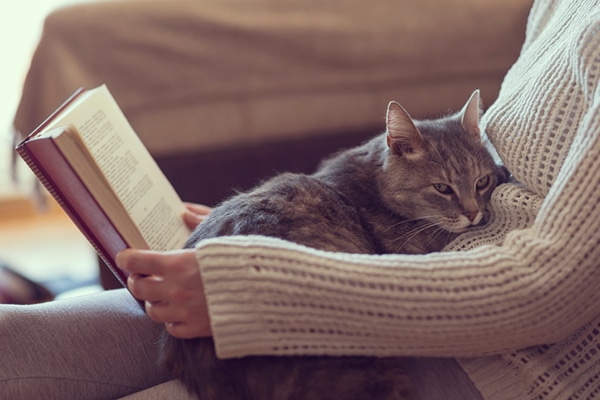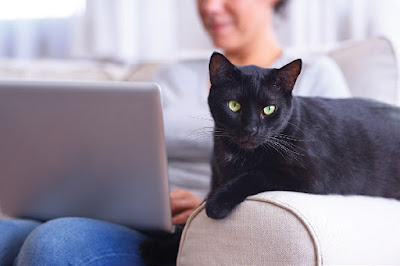Although certified cat behavior consultant
Marilyn Krieger’s cats are
lap cats,
they didn’t all used to be. Marilyn, who clicker trained her two
Bengals and Savannah, has an early generation Bengal who was not a lap
cat when she was younger. So, what if your cat isn’t a lap cat? Let’s
look into what makes cats lap cats … or not!
1. Age matters

Age might be a factor in determining if a cat is a lap cat or not. Photography by vladans/Thinkstock.
Age can be a factor, because while they’re young with high energy
levels, they may be more interested in running around and exploring
their territory than relaxing on a lap. Some cats become lap cats when
they lose some of their athletic ability as they age. They might feel
more vulnerable when they’re older and will seek security by sitting on a
trusted human’s lap.
2. A cat’s backstory comes into play
It could have a lot to do with their history, Marilyn says. All cats
have their own history which influences how secure or insecure they feel
about socializing and lap sitting, she explains. For example, a cat may
have been raised in an environment that included a lot of handling and
petting. Others may have had little socialization and, as a result, will
end up more
fearful of humans.
“Years ago I rehabilitated a feral cat I trapped,” Marilyn says. “It
took one year until he felt comfortable enough to venture out from under
the couch, another year until he let me pet him and then finally, about
three years after I trapped him, he sat in my lap.”
3. Some cats just aren’t lap cats!
Some cats might never become lap cats, because that’s just their personality, and that’s OK. “Some
show their affection sitting next to you. They
want to be near you
but don’t want to sit on your lap,” Marilyn says. Just as we all have
our preferences and love languages, if you will, cats also have their
preferred ways of showing and receiving affection. So far, my cat Sophie
is not a lap cat, but she gets
brushed five times a day because I’m convinced that being brushed is her love language.

